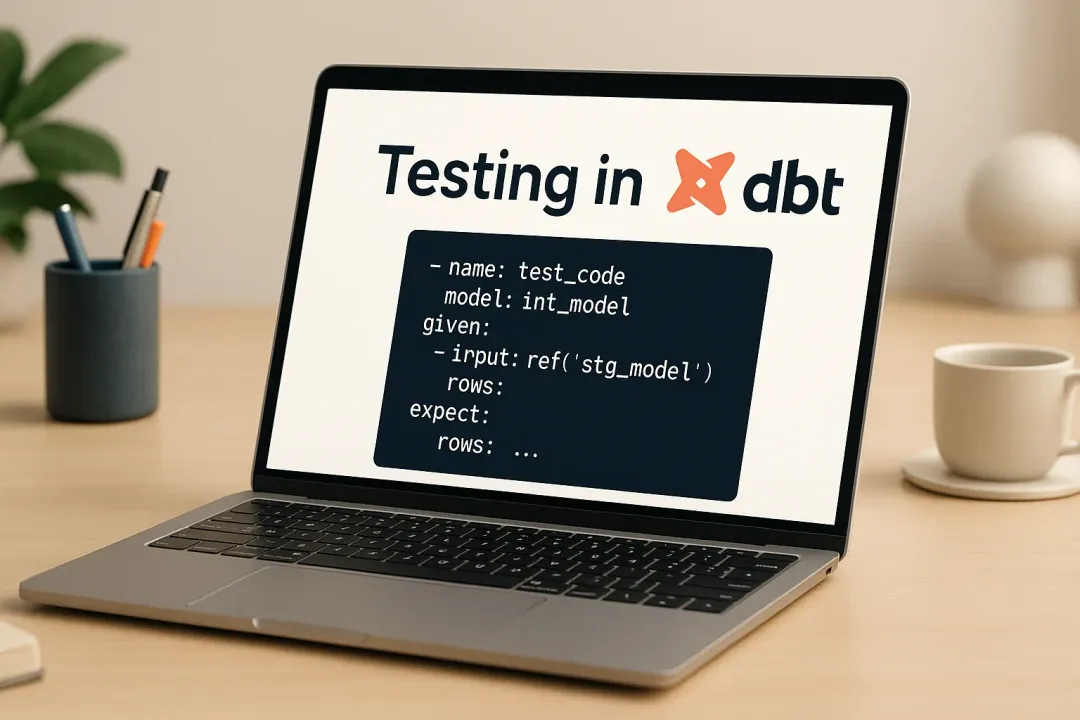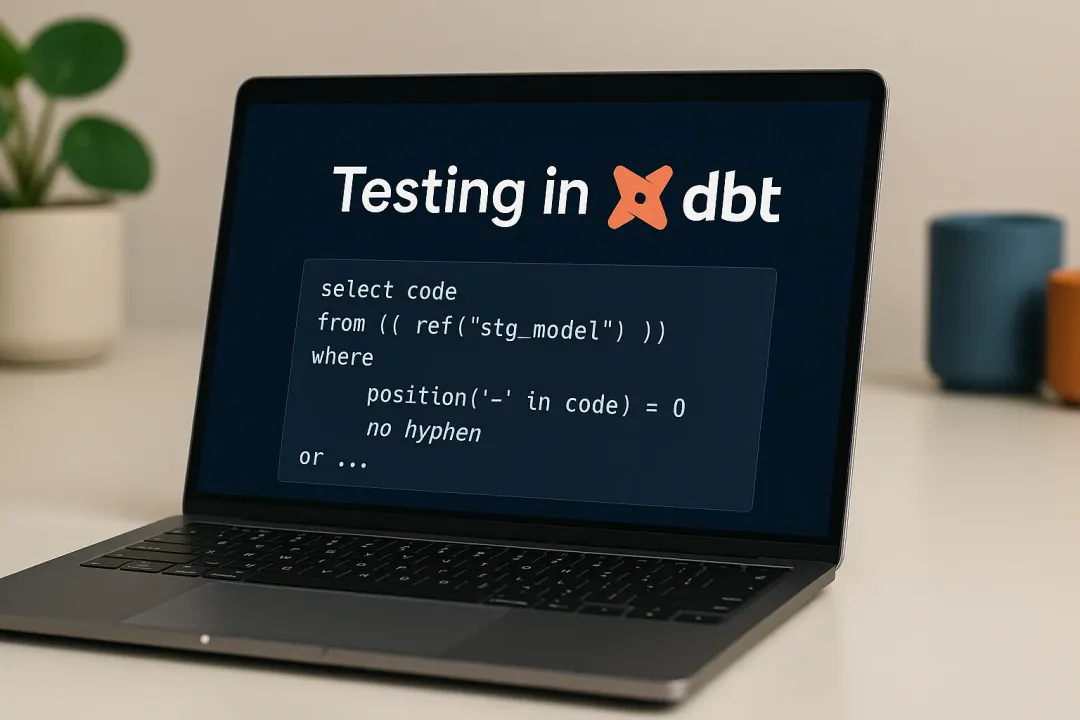
Maria Chojnowska
28 July 2023, 7 min read

What's inside
The rise of artificial intelligence (AI) is significantly transforming how we work, communicate, and navigate our career paths. The influence of AI on the job market is already apparent across multiple sectors, from healthcare and finance to retail, and its impact will continue to evolve.
As a content creator, a senior Python developer, and a recruiter, we're here to explore how AI is reshaping our professional landscapes and how we can prepare for this shift.
We'll discuss the strategies they're employing to stay relevant and competitive in this AI-dominated job market. Furthermore, we'll illustrate how, despite the advantages brought by AI, the human touch remains irreplaceable in certain aspects of these careers.
AI's Effect on the Job Market
AI's imprint is visible in various traditionally human-dominated tasks, such as resume screening, customer service through chatbots, predictive hiring, and writing code. As the technology matures, AI is expected to automate an even more comprehensive array of tasks, from content creation to software development.
The implications of AI's rise are twofold. On the one hand, it can augment efficiency and productivity, reduce errors and bias, and open up new roles in data science and machine learning. On the other hand, it could also lead to job displacement, particularly in sectors like customer service, data entry, manufacturing, and transportation. Navigating this changing terrain requires a nuanced understanding of AI's potential benefits and challenges.
Preparing for an AI-Driven Job Market
Everyone's work is being touched and reshaped by AI in ways we couldn't have imagined a few years ago. However, rather than viewing this as a threat, it's more productive to perceive AI as an opportunity—a tool that can enhance efficiency and allow professionals to focus on the tasks that truly require human insight and creativity.
Read on to understand the changing dynamics of the job market and how you can equip yourself to thrive in this new era.
Perspective of a Python Developer
In the realm of programming, the impact of artificial intelligence can be deeply felt. As Python remains one of the go-to languages for AI and machine learning applications, Python developers must stay abreast of the new tools, techniques, and trends in this ever-evolving landscape.
- Stay up-to-date with new tools and techniques:
Python developers must familiarize themselves with the latest AI and machine learning frameworks, libraries, and best practices. AI is an evolving field, and the tools and techniques continuously improve. Developers can leverage these advancements by staying updated to build more efficient, effective, and innovative solutions.
- Develop skills in data science and machine learning:
As AI continues to dominate various aspects of our lives, data science, and machine learning skills are becoming increasingly valuable. Python developers can utilize their knowledge of Python—one of the critical languages in these fields—to delve deeper into data science and machine learning. This could involve enrolling in specialized courses, attending relevant workshops, and initiating personal projects.
- Cultivate soft skills:
Despite the technical nature of their work, Python developers must not underestimate the importance of soft skills. The ability to communicate effectively, think creatively, and adapt quickly to new situations is crucial in a rapidly evolving field like AI. These skills enable developers to work collaboratively, explain complex concepts in layman's terms, and innovate on the fly.
Perspective of a Recruiter
The recruitment sector, known for its human-centric approach, is also experiencing significant transformation with AI integration. From automating repetitive tasks to enhancing candidate engagement, AI is reshaping how recruiters work, and thus, necessitating a fresh perspective in this profession.
- Harness the Power of AI in Job Descriptions:
AI-powered tools are revolutionizing the initial steps of the recruitment process, particularly in creating compelling and accurate job descriptions. These tools can analyze existing job descriptions, generate new ones based on specific requirements, and maintain consistency in language and structure. This not only helps save time for recruiters but also makes job descriptions more appealing to potential candidates.
- Leverage AI for Social Media Candidate Searches:
Suitable candidates are sometimes a daunting task to find, especially when searching through vast social media platforms. However, AI algorithms can quickly scan social media profiles like LinkedIn to identify potential candidates with the relevant skills, experience, and qualifications. This automated process allows recruiters to broaden their talent pool and discover candidates outside of traditional channels.
- Utilize AI for Efficient Resume Screening:
AI-powered resume screening tools have made reviewing numerous resumes less time-consuming and error-prone. These tools can analyze resumes, extract relevant information, and match them against job requirements. This efficient screening process enables recruiters to devote their attention to qualified candidates, thus saving time and effort.
- Enhance Candidate Engagement with AI Chatbots:
Engaging promptly with candidates and addressing their queries is crucial for a positive candidate experience. AI-powered chatbots can simulate human-like conversations, answering frequently asked questions about the job or application process. This automation of routine tasks allows recruiters to concentrate on building relationships with candidates and fostering meaningful connections.
- Leverage AI-Enabled Video Interviews:
AI-powered video interviewing tools are transforming the way recruiters conduct pre-screening interviews. No longer restricted by location, recruiters can now evaluate candidates from anywhere globally. These tools assess candidates' responses, analyze facial expressions, and provide insights to help recruiters decide who to invite for further interviews. This saves time, reduces costs, and broadens the pool of potential candidates.
Despite all the benefits and efficiencies AI brings, recruiters must maintain a human touch in their approach. Striking a balance between leveraging AI technology and nurturing human connections will ensure a successful and effective recruitment process.
The Perspective of a Content Creator
As AI algorithms start to take over various tasks in content generation, it becomes increasingly important for content creators to adapt and discover ways to work in harmony with this technology.
- Embrace new technologies:
Staying on top of new technological advancements is crucial. This includes understanding how AI-powered tools work, their strengths and weaknesses, and how they can be leveraged for content creation. For instance, AI tools could automate repetitive tasks, such as researching keywords or generating outlines, allowing content creators to focus on higher-level aspects of their work.
- Focus on creativity and storytelling:
AI might be capable of generating the content, but it cannot currently replicate human creativity and narrative craft. Thus, content creators should hone their storytelling skills, creating unique and compelling narratives that resonate with their audience. By offering original insights and evoking emotional responses, creators can ensure their work stands apart from AI-generated content.
- Build skills in data analysis and strategy:
AI's expanding role also means more data to analyze. By developing data analysis skills, content creators can understand their audience better, gauge the performance of their content, and make data-driven decisions. Understanding how to strategize content to capitalize on AI's strengths and mitigate weaknesses will be valuable in the future job market.
Conclusion
In conclusion, the rise of AI is ushering in a new era of work, reshaping careers and introducing a myriad of opportunities and challenges. It's crucial to embrace this change, invest in learning new technologies, and persistently enhance our skills to thrive in this AI-dominated job landscape. Remember, the key to navigating this evolution is not seeing AI as a foe but as a formidable ally that, when used correctly, can unlock unprecedented efficiency and innovation. Balancing the precision of technology with the unique intuition of humans, we can redefine the future of work.
Throughout these transitions, the principle of lifelong learning stands as a beacon, underscoring the importance of constant self-improvement and adaptability. Technological advancements are swift and relentless, and to stay competitive and relevant, we must be too.
Now, more than ever, it's essential for us all, irrespective of our profession, to commit to an ongoing journey of learning and adaptation. To help you stay ahead of the curve, we encourage you to **subscribe to our highlights for the latest insights and updates on AI's impact on different career paths, emerging trends, and effective strategies to leverage AI in your work. Stay informed, stay ahead, and together, let's embrace the future of work.


